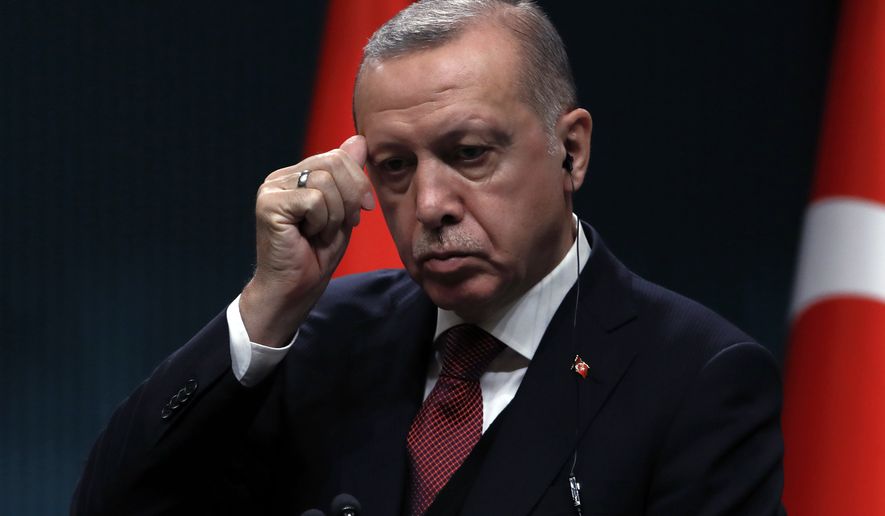Turkish media claimed Friday that an American delegation including FBI officials was in the second day of meetings in Ankara to discuss Turkey’s outrage over U.S.-based cleric Fethullah Gulen, whom Turkish President Recep Tayyip Erdogan accuses of masterminding a failed 2016 coup in the country.
While the Trump administration has not confirmed that a U.S. delegation is in Turkey, the official Anadolu news agency reported that a two-day meeting commenced Thursday on U.S. cooperation with Turkish authorities to counter the so-called “Fetullah Terrorist Organization” (FETO), which the Erdogan government claims carried out the coup.
The 11-hour meeting at Ankara Courthouse was attended by Ankara Deputy Chief Public Prosecutor Ramazan Dinc, Public Prosecutor Ali Alper Saylan, Turkish Justice Ministry officials, and the U.S. delegation, including FBI officials, according to Anadolu, which cited Turkish sources as speaking anonymously about the discussions.
The talks scheduled for Thursday and Friday are seen as important for exposing the role of FETO’s U.S.-based leader Fetullah Gulen and his inner circles, the agency claimed.
It pointed to earlier reports that Ankara prosecutors believe several Gulen operatives visited the U.S. in the lead up to the 2016 coup attempt, claiming that FETO is behind a long-running campaign to overthrow the Turkish state through the infiltration of Turkish institutions, particularly the military, police and judiciary.
The reports follow years of pressure from the Erdogan government over the status of Mr. Gulen, a 77-year-old Muslim cleric who was once an ally of the Turkish president but has lived in self-imposed exile in Pennsylvania for roughly the past two decades.
Turkish authorities arrested thousands of alleged Gulen supporters in Turkey two years ago, claiming they were behind the failed coup. Human rights groups criticized the arrests as a ham-fisted crackdown against opposition groups.
Ankara separately demanded Washington arrest extradite the cleric from the United States. Mr. Gulen has staunchly denied the allegations against him, and the Trump administration has so far not yielded to the Turkish pressure.
But Turkish Foreign Minister Mevlut Cavusoglu made headlines last month by claiming President Trump has assured Mr. Erdogan that Washington is working on the extradition.
Despite a public assertion by Mr. Trump in November that extradition is “not under consideration,” Mr. Cavusoglu said Mr. Trump privately discussed the matter with Mr. Erdogan on the sidelines of the recent G20 summit in Argentina.
White House spokeswoman Sarah Sanders pushed aside questions from reporters on the matter in mid-December, saying Mr. Trump had merely indicated he “would take a look at” the Gulen issue. “Take a look at it but nothing committal at all in that process, just that he would look into it,” she said.
Mr. Trump, meanwhile, dismissed reports in November that he was weighing the matter to appease Mr. Erdogan in the wake of Saudi journalist Jamal Khashoggi’s death in Istanbul.
With Turkish-Saudi tensions soaring amid Turkey’s claim that a Saudi government hit squad had murdered Mr. Khashoggi, an NBC News report said Mr. Trump was considering extraditing Mr. Gulen to “placate” Mr. Erdogan and convince Turkey to ease pressure on Saudi Arabia.
When asked about the report on Nov. 17, Mr. Trump told reporters at the White House that such a move was “not under consideration.”
• Guy Taylor can be reached at gtaylor@washingtontimes.com.




Please read our comment policy before commenting.